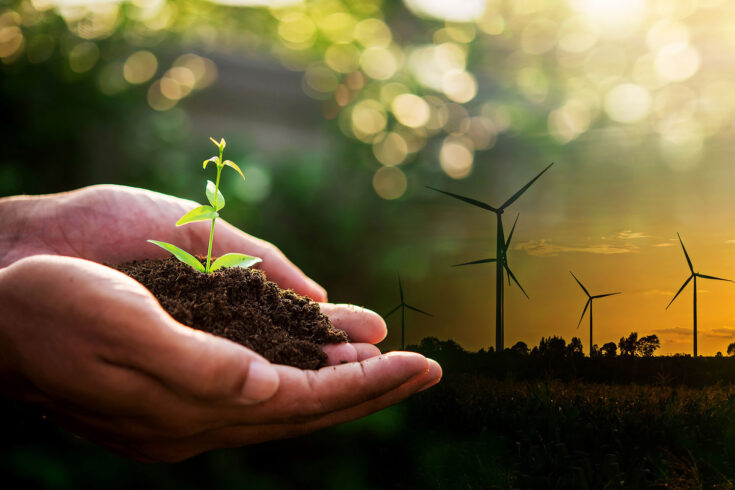This interdisciplinary, challenge-led research initiative aims to enable a transformative transition to low-carbon energy systems in developing countries.
Supported by the UK government’s Ayrton Fund, a £1 billion commitment to research and development in clean energy technologies and business models.
The projects, have each received a share of over £33 million, and will foster equitable partnerships with in-country researchers.
Why this matters
Access to sustainable energy is a critical enabler of development, climate action and equality. Millions in developing nations face energy inequality, which hampers socio-economic growth and exacerbates vulnerabilities to climate change.
By supporting innovative, locally co-created solutions, these projects will:
- advance progress toward United Nations Sustainable Development Goals, particularly Goal 7 (Affordable and Clean Energy) and Goal 13 (Climate Action)
- foster inclusive and sustainable energy access, ensuring no one is left behind
- enhance global knowledge exchange, connecting UK and international expertise to deliver lasting impact
A collaborative approach
The Ayrton Challenge Programme promotes equitable partnerships between UK and in-country researchers to ensure projects are locally relevant and impactful.
By networking with other initiatives under the wider Ayrton Fund, these projects aim to deliver scalable solutions to energy and climate challenges globally.
Unlocking transformative solutions
Frances Wood, UK Research and Innovation International Director, said:
The Ayrton Challenge Programme demonstrates the power of research and innovation to address critical global challenges. These projects exemplify how equitable, interdisciplinary collaboration can unlock transformative solutions, ensuring a sustainable and inclusive energy future for all.
Further information
Find out more at: The UKRI Ayrton challenge programme (outlines).
Highlights of the funded projects
Smart hydropower solutions (SMART-HS)
Lead UK research organisation (RO): University of Oxford
Revolutionising clean hydropower generation in Vietnam, Laos and Cambodia to meet growing energy demand sustainably and equitably.
Sustainable, holistic and inclusive energy systems for wellbeing (SHINE)
Lead UK RO: University of Bristol
Leveraging a wellbeing framework to design inclusive energy systems in The Gambia and Ghana, addressing socio-economic, environmental and health challenges.
Mainstreaming gender equality and social inclusion for a just energy transition in Ethiopia, Malawi, Mozambique and Tanzania (JustGESI)
Lead UK RO: The University of Sheffield
Advancing gender equality and social inclusion in the energy transitions of Ethiopia, Malawi, Mozambique and Tanzania.
Circular microgrids: circular economy pathways for renewable microgrids in Africa
Lead UK RO: De Montfort University
Deploying renewable microgrids in Africa using repurposed electronic waste to reduce costs and environmental impact.
African SCENe (sustainable community energy networks)
Lead UK RO: University of Nottingham
Turning schools in Kenya into renewable energy hubs to foster community resilience and education.
Innovative recycling of e-waste for critical metals and sustainable economy in Malaysia (iRECYCLE-Malaysia)
Lead UK RO: Queen’s University Belfast
Innovating sustainable e-waste recycling to recover critical materials and boost Malaysia’s circular economy.
Resilient renewable energy access through community-driven holistic development in perovskite solar module manufacturing (REACH-PSM)
Lead UK RO: Swansea University
Manufacturing advanced solar technologies in Africa to empower local communities and create sustainable energy solutions.
Moving IMPACT: integrated means to power agriculture, clean cooking and transportation
Lead UK RO: Imperial College London
This project explores how solar mini-grids integrated with electric vehicle charging infrastructure can meet agricultural and community energy needs in Sub-Saharan Africa, advancing sustainable energy access and local development.
Innovative approaches to downstream energy utilisation from solar irrigation pumps in Bangladesh (SMART-SIP+)
Lead UK RO: Birmingham City University
Harnessing excess electricity from solar irrigation pumps to support clean energy transitions in rural Bangladesh, enabling sustainable agriculture, cold storage and food processing while reducing emissions and post-harvest losses.
Co-designing clean energy for rural Africa with service innovations and digital twins (CREDiT)
Lead UK RO: University of York
The project focuses on developing solar mini-grids in rural African communities (Kenya, Malawi and Zambia).
By leveraging cutting-edge digital technologies and participatory design, it aims to co-create sustainable Energy-as-a-Service business models. It also aims to empower communities, particularly women, through skills training, knowledge-sharing and resources to manage and expand solar energy solutions.
Super-efficient sustainable cooling solution for all applications (S2Cool)
Lead UK RO: Northumbria University
Addressing energy-efficient cooling solutions to combat extreme heat in Pakistan.
Sustainable cooling infrastructure for fisheries in Indonesia (SCI-FI)
Lead UK RO: University of Birmingham
Creating sustainable cooling infrastructure for fisheries in Indonesia to reduce food loss and boost livelihoods.
Participation of women in renewable energy (POWERE): inclusive innovation with floating photovoltaics in remote island and coastal communities
Lead UK RO: University of Sussex
Empowering women in Indonesia and beyond through innovative floating solar technologies for island and coastal communities.

